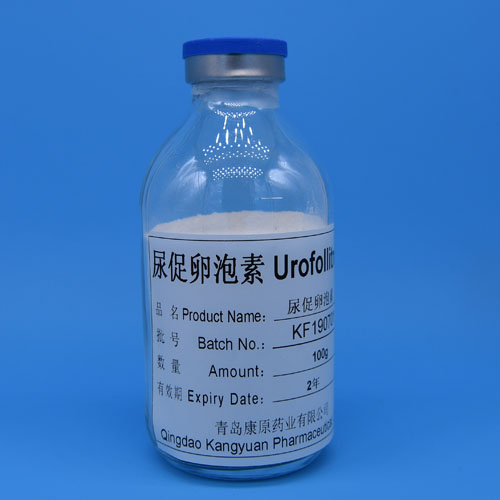Ulinastatin is a glycoprotein that belongs to the serine protease inhibitor
family. It was first isolated from the urine of healthy males and has been
widely used in the clinical treatment of various diseases. Ulinastatin is a
potent anti-inflammatory agent and has been shown to reduce the levels of
pro-inflammatory cytokines in the body.
In recent years, the manufacture of ulinastatin has become a hot topic in
the pharmaceutical industry due to its therapeutic potential. The production of
ulinastatin can be achieved through two main methods: extraction from natural
sources and recombinant technology.

Extraction of ulinastatin from natural sources involves the isolation of
the protein from urine or other biological fluids. This method is the oldest and
most commonly used method for manufacturing ulinastatin. However, this method
requires a large amount of starting material and is associated with issues such
as contamination and impurity. In addition, it is difficult to scale up the
production of ulinastatin using extraction from natural sources.
On the other hand, recombinant technology offers a more efficient way to
manufacture ulinastatin. This method involves the use of genetic engineering to
produce ulinastatin using a host cell line. Recombinant ulinastatin is usually
produced from Chinese hamster ovary (CHO) cells, which are capable of expressing
large amounts of ulinastatin protein. This method has several advantages over
extraction from natural sources, including higher purity levels and greater
scalability.
The use of ulinastatin in clinical treatment has been well documented. It
has been shown to be effective in the treatment of acute pancreatitis, sepsis,
and other inflammation-related diseases. The therapeutic mechanism of
ulinastatin is thought to involve its ability to inhibit the activity of serine
proteases, which play a key role in the inflammatory response.
In conclusion, the manufacture of ulinastatin has become an important focus
of the pharmaceutical industry due to its therapeutic potential. In order to
overcome the limitations of traditional extraction methods, recombinant
technology has emerged as a more efficient and scalable manufacturing process
for ulinastatin. The use of ulinastatin in the treatment of inflammatory
diseases has shown promising results, and ongoing research is focused on further
exploring its therapeutic potential.